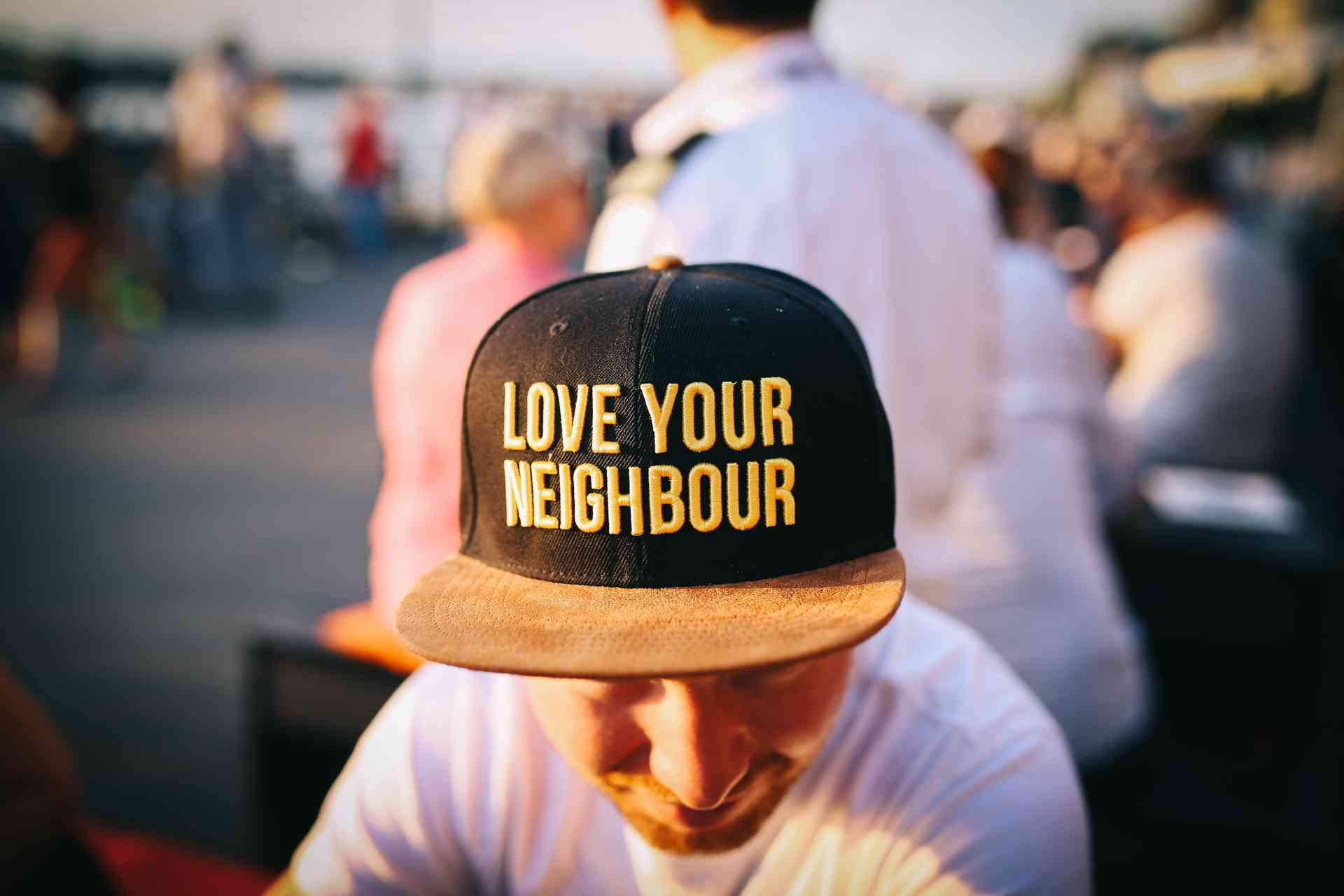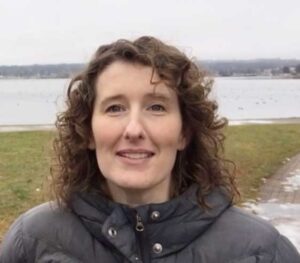This is a cross-post from our Substack collab, The Whale. Five writers, each with unique and refreshing takes on environmental and social issues.
Read and subscribe to weekly posts here.

We all see them—the posers. The ones who say they’re environmentally conscious, but then they do things like use disposable diapers and single use plastics, drive a pickup truck, feed their kids pre-packaged food, travel by plane, or live in a suburb.
Just like me.
I heard an audible gasp from some of you. The shock and disappointment that someone who is considered an environmental leader isn’t pure, isn’t living the way of environmentalism in every single moment. I know. Sigh.

For many years, I had a lot of shame and guilt that I’m not one of those “good” environmentalists: vegan, beeswax wraps everything, never throws anything out, doesn’t travel by air, bikes more than anything else, you get the idea. For some of you reading this, you’ll still want me to feel shame and guilt.
For some of you, you may be eager to label me as an environmental hypocrite. I mean I’ve heard it all and frankly, it has kept me fearful that someday I’ll be exposed as this bad person, a fake. I guess I’ve decided to confess to free myself and hopefully the larger movement.
The environmental movement does itself no favours when we set up these criteria about who is pure enough to join the cause.
Drive a truck? Nope. Take a trip with family by plane? Not a chance. Eat red meat? Do you know how damaging that is?!? Use saran wrap. You know there’s beeswax wrappers now right?!?
But here’s the thing. Our systems are oppressive, distribute income unfairly, intentionally work against climate action and for the most part are inhumane.
My son came to me the other day asking how ethical is an electric car when we know most of the battery mining is done by exploited workers including children? The alternative, an internal combustion engine, poses another set of ethical problems. How do you make an ethical choice in an unethical market?
I’m done with environmentalism being this exclusive club that requires the highest level of self-sacrifice and privilege.
Another example is that caretaking tasks are generally assumed to be “women’s work” without much societal support.
I am my mother’s primary caregiver and her dementia means she lives with my family. Her decline means bathroom functions aren’t the same and require her to wear diapers. Where is the adult diaper service that comes to my house and provides clean reusable diapers for me to use? Oh we don’t have one? So disposable diapers have become my choice. I would love to make another choice, but I don’t have other options considering constraints.
My climate guilt each time I put out another bag of her diapers is immense. I used reusable for my kids, but now things are different including how tolerant our environmental community is of people making these types of choices.
Look, some of you may see this as an attempt to absolve myself from any guilt or responsibility. Maybe, partially, that is true. However, I work as hard as anyone on collective climate action at the local and provincial level. I have the battle scars to prove it. The work I do makes a difference. The choices I make are the best that I can considering the resources I have available to me. If people want to invalidate that because I should have been better, more pure, more committed, then so be it.
I’m done with environmentalism being this exclusive club that requires the highest level of self-sacrifice and privilege. We keep it this way at our peril. Our insistence that certain behaviours are “good” while others are “bad” and therefore invalidate the entire person (and their sense of belonging to a community that cares about our Earth) is so maddening.
We need an update to our community-building schema.
First, we are not fighting each other. We are fighting systems that keep us in status quo loops that are destroying our planet and our communities. If you think alienating your neighbour about how much they recycle is the best way to protect the planet, the data and science will clearly tell you should put your energy elsewhere.
Second, we are so beyond individual acts saving the day. Sure, do all you can, it will help, but we will still fall short. Besides, getting everyone to buy into these changes is such an inefficient way to combat climate change.
Real change requires policy change and societal shifts. To make policy changes and shifts, it is estimated that only 10-15% of a population needs to support it wholly with action. So what if, instead of focusing on 100% of people changing their behaviour (which will never happen in my opinion), we focused on bringing together communities and broadening our allies so that we can work together for just climate action.
What if we started right now in our communities to make climate friendly changes:more bike lanes, fewer highways, more community centres and shared spaces, more green, less grey, protected forests and so on?
That is collective action that can be done now that requires a small subset of the population to work together. It would build bridges and have a wide scale impact with people in our community—even ones we’re not connected to or ones that see climate change as an issue.

However, that would mean we would have to lay down our self-righteous environmental sword and accept people as they are even if they commit environmental faux-pas. I would rather have 100 imperfect people who are helping on the ground than two people who are doing everything right. Fact is, there are way more imperfect people than perfect ones anyway.
I had a neighbour approach me sheepishly a couple of years ago. The composting program in our neighborhood just rolled out and she really didn’t understand what went in it or not, and as a result, she just didn’t compost for the longest time.
Then one day after getting to know me better, she decided that maybe I could help her. She was embarrassed, but she truly cares about our world and nature. So I went through it without judgment and without a lecture.
She assumed that I would be mad at her being such a “bad” person, but instead I just told her that we’re each on this journey and we’re all learning at different rates.
Now she’s probably one of the most dedicated composters out there and has taught other neighbours, who were equally reluctant, tips and tricks. My acceptance welcomed her into a space where she could find power to help others on behalf of our planet.
The more we focus on keeping climate action as a moral issue and judging each other as good or bad, the less likely environmentalism will feel like a place for people looking for answers to help our planet. They’ll turn to other communities to find belonging and not all of them will have our collective health at the forefront.
So to all my other “bad” climate activists out there, I see you and it’s all okay. Wherever you go, there you are.
For you environmental gatekeepers, I ask you to think if you’re really helping the cause by applying a puritanical lens to every person who doesn’t do it “right”.
We need to win the hearts and minds of people, so please have an open and compassionate heart with others who may just become a great ally like my neighbour.
Wherever you are in your climate concern journey is valid and at least for my part and that of SCGC, we welcome you regardless of how little you do or how much you do. All that matters to us is that you care and you want to make a difference now and for future generations.
About the Author

Margaret Prophet
Margaret has a Bachelor of Education, specialized in Adult Education and a BA of Psychology from Brock University. She worked in the corporate education sector for 7 years at a Director level including as Director of Communications and Operations. In late 2015, Margaret and Sandy Agnew founded the Simcoe County Greenbelt Coalition with 15 like minded groups from across the region in support of an expanded Greenbelt.
Related Content

Issue Brief: The Nottawasaga Watershed
The Nottawasaga watershed, due to its natural fragility and its proximity to development pressure, is a crucial area to watch in the coming decade. The absence of a cohesive plan for the region, predicated on a recognition of its vulnerability and the need to proactively identify and protect key areas, is akin to rolling the dice with regard to whether we will have a healthy and viable ecosystem in the future.

Issue Brief: Energy East Pipeline
Should Canada revisit the Energy East pipeline proposal to transport Alberta oil to Atlantic tidewater?
This question has reemerged from the dustbin to which it was consigned, due in large part to the unpredictability of the current U.S. administration.

Poll – Buy Canadian
With the advent of an antagonistic, or maybe hostile, administration to the south, and the threats made by Trump to our country, this month we’re asking about the actions you’ve taken in response, and whether there are nice surprises you’ve discovered along the way?
Community supported, advocacy for a safe and secure future.
Governments have failed to act to protect our communities and the futures of our children and grandchildren, and they continue to treat our environment as if it’s incidental to life, rather than a foundation for it.
We need strong community organizations to fight for our future, now more than ever.
Please consider donating to support our work. It’s people like you who make us possible.
Subscribe to Our Newsletter
We send out a once-monthly newsletter full of information on what’s happening in Simcoe County and beyond, including information on how you can take action to protect the health of your community.


